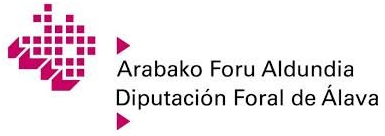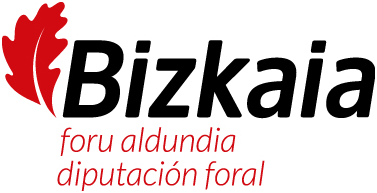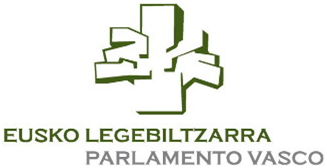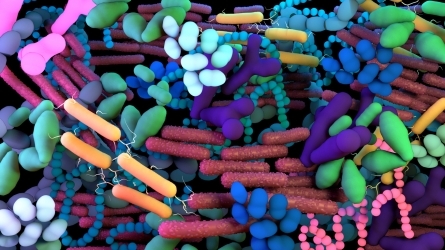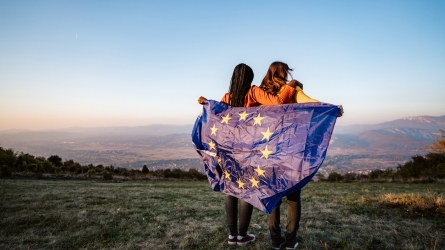
Visiones de la paz y del papel de la Unión Europea en un mundo multipolar: Brasil, Rusia, África Occidental, India, Pakistán y Estados Unidos
The Course will reflect on the keys to the success of the peace model built in Europe and analyse what aspects would need to be modified or added to restore peace to the continent. Going beyond Europe, it will also try to bring together visions of peace in different parts of the world.
Description
One of the core elements of the European integration project is to achieve peace. After two world wars, the peoples of Europe longed for a real, structural peace, not dependent on shifting agreements between the powers, as was made clear at the Congress of Europe (The Hague, May 1948). In line with this public outcry, governments initiated a bold political process that has proved to be a successful peace mechanism. Political and economic integration has banished war among its member states, and has played a leading role in mediating conflicts and supporting transitions to democracy around the world.
Nevertheless, there were border wars in the Balkans in the 1990s, and now there has been another large-scale war in Europe, with Russia's invasion of Ukraine. It seems timely, therefore, to reflect on the keys to the success of the peace model built in Europe, and to analyse what aspects would need to be modified or added to restore peace to the continent.
Going beyond Europe, the course will try to bring together visions of peace in different parts of the world. With this in mind, this Summer Course will invite both European and non-European speakers, with the aim of promoting a debate on how peace is conceived today. At the same time, there will be a critical reflection on what could, or should, be the role of the European Union in building and promoting peace in the current international system.
The idea would therefore be to bring together speakers who can contribute their visions of peace from, for example, India, the Arab world, Africa, Latin America, and also including the two great superpowers: USA and China.
Objectives
Promote a debate in Basque society on peace in the 21st century. Conflicts have been transforming, and therefore the mechanisms of resolution and prevention must adapt to the new realities.
Promote a critical and constructive reflection on the role of the European Union as a peace-building actor in Europe and in a complex and multipolar world.
Hear how peace is perceived in other cultures outside Europe, in order to enrich our vision, and to be able to contrast European concepts with others arising in different contexts and realities.
Analyse the expectations that other powers and regions of the world have of the EU's ability to lead peace-promoting initiatives.
Activity directed to
- All public
- University student
- Students not from university
- Teachers
- Professionals
Organised by
In collaboration with
Program
03-07-2025
Institutional Opening session. Speaking order:
- Idoia Otaegui Aizpurua | Uda Ikastaroak /Cursos de Verano - Zuzendaria / Directora
- Irune Zuluaga Zamalloa | EuroBasque - Presidenta
- Mikel Antón Zarragoitia | Eusko Jaurlaritza / Gobierno Vasco - Director para la Unión Europea
- Ion Gambra Ibarzabal | Gipuzkoako Foru Aldundia / Diputación Foral de Gipuzkoa - Director General de Derechos Humanos y Cultura Democrática
- Bakartxo Tejeria Otermin | Parlamento Vasco - Presidenta
Lecture
Presenta y modera
- Carmelo Barrio Baroja | Eurobasque - Vicepresidente
America’s perceptions of peace
- Juca Ferreira | Culture of Brasil - Ex-Minister
Pausa-Café
Lecture
Moderadora
- María Oianguren Idigoras
Russia’s perceptions of peace
- Pavel K. Baev | Peace Research Institute Oslo (PRIO) - Research Professor
Africa’s perceptions of peace
- Levinia Addae-Mensah | West Africa Network for Peacebuilding (WANEP) - Executive Director
Break
“La visión de India“
- Shubhra Sharma | Embajada de India - Responsable de Cultura
Round table: “Paz desde los márgenes“
- Julen Martínez Arbulu (Moderator)
¿Paz sin migrantes? Narrativas legales de criminalización en el contexto del Pacto Europeo de Migración y Asilo
- Araitz Peña Mallona | Universidad de Deusto
Visiones alternativas a la paz: Una perspectiva feminista de la justicia y reparación
- Idurre Mendibil Errazti | Universidad de Deusto
- Sara Nicholson Mendieta | Gernika Gogoratuz (Participation by zoom)
Camino a la XV. Edición del congreso internacional Mundos Mujeres en Euskal Herria: Pazes desde las prácticas comunitarias
- Maitane Zarate Herrero | Gernika Gogoratuz
04-07-2025
Lecture
Presenta y modera
- Igor Zulaika Zurimendi | EuroBasque - Vicepresidente
Diplomacia científica y paz: una visión desde Pakistán
- Muhammad Adeel | Second Secretary Embassy of Pakistan in Brussels
Presenta y modera
- Igor Zulaika Zurimendi | EuroBasque - Vicepresidente
Red peace vs. Blue peace
- Xabier Irujo Ametzaga | University of Nevada, Reno - Chair of the Center for Basque Studies and Full Professor
Pausa-Café
“Conferencia“
Unión Europea y Paz en un mundo multipolar
- Mira Milosevich | Real Instituto Elcano - Senior Fellow for Russia, Eurasia and the Balkans
Closing session
- Beatriz Pérez de las Heras | EuroBasque - Vocal
Directors

Igor Filibi López
Eurobasque, Secretario General
Igor Filibi (Bilbao, 1971) se licenció en Ciencia Política y de la Administración (1995) y en Sociología Política (1997). Su formación de postgrado incluye diplomas en integración europea (1996) y en Derecho Constitucional y Ciencia Política (Madrid, Centro de Estudios Constitucionales, 1997). Cursó el programa de doctorado del Departamento de Derecho Internacional Público y Relaciones Internacionales (avalado con la mención de calidad del Ministerio de Educación) y defendió su Tesis en 2004, obteniendo la máxima calificación (sobresaliente cum laude por unanimidad). El tema de tesis consistía en explorar la influencia del proceso de integración política sobre los conflictos de las naciones sin Estado. A continuación trabajó en el proyecto europeo EUROREG (financiado por la Comisión Europea; contrato FP6 506019) entre septiembre de 2004 y agosto de 2007. Actualmente trabaja como profesor en el Departamento de Relaciones Internacionales de la Universidad del País Vasco.

Beatriz Pérez de las Heras
EuroBasque, Vocal de la Junta Directiva
Beatriz Pérez de las Heras is Professor of European Union Law and Jean Monnet Chair on European Integration at the University of Deusto (UD). PhD in Law (UD), she accomplished post-graduate studies at the Centre Européen Universitaire de Nancy (France), where she obtained the DESS and DEA en Droit Communautaire. She was Director of the European Studies Institute at UD from 1996 to 2009 and also served as Vice-Dean for Research and International Relations at Deusto Faculty of Law from 2013 to 2015. She has been a visiting scholar at the Universities of Oregon (2009), Georgetown (2012), Fordham (2013), Boston College (2014), Florida International University (2016) and Canterbury, (New Zealand, 2023). She is currently Editor-in- Chief of Cuadernos Europeos de Deusto Journal (SCOPUS-indexed ) and Main Researcher of the “Integración Europea y Derecho Patrimonial” research team. She is author of several books on European legal issues.
Speakers

Levinia Addae-Mensah
Levinia Addae-Mensah is a renowned Peace, Security, Governance, and Development practitioner with 30 years of experience. She is the first female Executive Director of the West Africa Network for Peacebuilding (WANEP), a role she has held since September 2024. In this capacity, she provides strategic leadership and oversight for WANEP’s mission to foster sustainable peace and security across West Africa, drawing on her vast experience working with local communities, academics, policymakers, and state institutions in areas such as Security Sector Governance, Violent Extremism, Election Management, Gender, Youth, Dialogue, and Mediation. Levinia has worked in volatile contexts including Rwanda and Côte d’Ivoire and has made significant contributions to peace processes in Liberia and Burundi. Her expertise encompasses developing peace infrastructures, multi-stakeholder dialogue mechanisms, and security strategies, as well as contributing to research, training, and policy development across Africa and Europe. She has engaged extensively with inter-governmental organizations, state and non-state institutions, and has a proven track record in building partnerships that support peace and security initiatives.
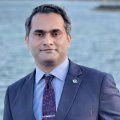
Muhammad Adeel
Muhammad Adeel is a Career Diplomat with the Ministry of Foreign Affairs, Pakistan currently serving in the Embassy of Pakistan to the European Union, Belgium and Luxembourg in Brussels. He deals with matters related to scientific and technological cooperation between the EU and Pakistan. Prior to joining the Civil Services in 2015, he completed his B.Sc. (Hons) and M.Phil. in Biotechnology from FC College Lahore, where he authored two dissertations on microbial diversity and biotechnology applications. His doctoral work, at the Western Australia Biotechnology Centre, Perth, Australia has examined the regulatory and science diplomacy perspectives of Gene Editing. He has also spoken on forums such as TEDx on the social perspectives of Biotechnology. In 2019, he initiated Science Diplomacy trainings in Australia for Early Career Researchers, which was awarded as the Best Education Initiative by the Council of Australian Postgraduate Association (CAPA), the federal peak body representing postgraduates in Australia. Prior to joining the Foreign Service of Pakistan, he was the Manager of Pakistan Biotechnology Information Centre at FC College, Lahore which was involved in science policy and communication linkages for Biotechnology ap

Pavel K. Baev
Dr. Pavel K. Baev is a Research Professor at the Peace Research Institute Oslo (PRIO), which he joined in October 1992. He is also a Senior Non-Resident Fellow at the Brookings Institution (Washington DC), a Senior Research Associate at the French Institute of International Relations (IFRI, Paris), and a Senior Associate Researcher at the Italian Institute for International Political Studies (ISPI, Milan). He graduated from the Moscow State University (MA in Political and Economic Geography) in 1979, and received PhD degree from the USA & Canada Institute, USSR Academy of Sciences, in 1987. His main areas of expertise are the transformation of the Russian strategic culture and armed forces, including nuclear modernization, the evolving pattern of confrontation between Russia and the West, the Russia-China strategic partnership, Russia’s policy in the Middle East, and Russia’s security policy in the Arctic. He writes a weekly column for Eurasia Daily Monitor since 2005.

Carmelo Barrio Baroja
Eusko Legebiltzarra
En la actualidad Diputado por Álava en el Congreso de los Diputados. Partido Popular. Formación académica: Licenciado en Derecho por la Universidad del País Vasco/EHU. Curso Superior de Derecho y Economía de la Cooperativas UPV/EHU Gezki. Curso Escuela de Práctica Jurídica Colegio de Abogados de Álava. Trayectoria institucional: Diputado en el Congreso 2024 Parlamentario Vasco por Álava 1990-2024 Miembro de las Juntas Generales de Álava 1987-1990 Concejal Ayuntamiento de Zambrana (2003-2007) y Peñacerrada (2011-2015).

Juca Ferreira
Juca Ferreira es sociólogo y ha dedicado su carrera profesional a la política y a la acción social, cultural y ambiental. Fue líder estudiantil de secundaria y fue elegido presidente de la Unión Brasileña de Estudiantes de Secundaria (UBES) el mismo día de la promulgación del Decreto AI-5 que endureció la dictadura militar. Después de dos años, abandonó la carrera de Historia en la Universidad Federal de Bahía y se unió a la resistencia contra el régimen militar. Pasó nueve años exiliado en Chile, Suecia y Francia. Estudió Lenguas Latinas en la Universidad de Estocolmo, Suecia, y Ciencias Sociales en la Universidad París 1 - Sorbona, Francia, donde se graduó. Fue concejal en Salvador en dos ocasiones. Fue Secretario de Medio Ambiente del Municipio de Salvador, Vicepresidente de la Fundación OndAzul y representante de la sociedad civil en la elaboración de la Agenda Nacional 21,. Durante más de cinco años, fue Secretario Ejecutivo del Ministerio de Cultura durante el gobierno de Gilberto Gil y, en 2008, fue invitado por el entonces presidente Luiz Inácio Lula da Silva a asumir el cargo de Ministro de Cultura, permaneciendo al frente del Ministerio de Cultura hasta el final de su mandato.

Xabier Irujo Ametzaga
University of Nevada, Reno
Born in exile in Caracas, Venezuela, in 1967, Dr. Xabier Irujo is a scholar of genocide studies. He currently serves as the Chair of the Center for Basque Studies and Full Professor at the University of Nevada, Reno. Dr. Irujo holds three master’s degrees in linguistics, history, and philosophy, and two PhDs in history and philosophy. Aa a mentor, he has supervised nearly twenty PhD dissertations and guided numerous graduate students. Dr. Irujo has held several academic appointments, including as the first guest research scholar of the Manuel Irujo Chair at the University of Liverpool, William Douglass Visiting Lecturer at the University of Massachusetts Amherst, and Eloise Garmendia Chair at Boise State University. He has lectured at over thirty universities and institutions across Europe and the Americas, including parliaments, museums, and national libraries. Specializing in genocide studies, with a focus on both physical and cultural extermination, he serves on the editorial boards of six academic presses in Europe and the Americas. He is the author of over fifteen books, including Gernika 1937: The Market Day Massacre (2015), Gernika: Genealogy of a Lie (2018), and Charlemagne’s Defeat in the Pyrenees (2021).

Julen Martínez Arbulu
EuroBasque, Estudiante
Graduado en Derecho y Relaciones Internacionales en la Universidad de Deusto en Bilbao y colaborador de la asociación EuroBasque. Analista internacional en Radio Vitoria.

Idurre Mendibil Errazti
Universidad de Deusto
ACADEMIC STUDIES PhD Programme on International Relations and Human Rights - University of Deusto | 2024 – • Access to Justice and Reparation in Transitional Justice processes: Women's Courts. Master's Degree in International Security - Institut Barcelona d'Estudis Internacionals (IBEI) | Sep 2021-Mar 2023 • Master's Thesis: Overcoming the Barrier of Silence: Lessons from Civil Society Feminist Movements. The Women’s Court in the former Yugoslavia. Bachelor's Degree in International Relations University of Deusto | 2013 - 2017 • Bachelor's Degree Final Project: State Ideology and Ethnic Conflict Resolution. A comparative case study of Basque and Northern Ireland peace processes. PROFESSIONAL EXPERIENCE Economic Office of the Embassy of Spain in Serbia - Belgrade Consultant (BEINT) | Jan 2019 - Nov 2019 • Market research for the infrastructure, agricultural machinery and capital goods sectors. • Support in the implementation of promotional activities such as trade missions. • Monitoring of aid and cooperation funds from International Organizations. Solaris Bus&Coach – Poznan Strategy Department (BEINT) | Jan 2020 - Jul 2020 • New strategic sales plan methodology design for European markets.

Mira Milosevich
Dr. MIRA MILOSEVICH es investigadora principal de Real Instituto Elcano, profesora del Instituto de Empresa (School of Global and Public Affairs) y autora de cuatro libros. Sus áreas de investigación son: el riesgo geopolítico como consecuencia de la rivalidad entre las grandes potencias (Rusia, China, UE, EE.UU.), la alineación y la reimperialización de los post-imperios euroasiáticos (Rusia, China, Irán, Turquía), el papel de Rusia en la seguridad internacional, las ambiciones rusas en el espacio post soviético, los Balcanes, Oriente Medio, America Latina y África, así como las transiciones políticas de los países post comunistas europeos y sus relaciones con la Alianza Atlántica y la Unión Europea. Dr. Milosevich ha asesorado al Parlamento Europeo, al Parlamento Español, al Parlamento del Reino Unido, a la OTAN, al STRATCOM (Strategic Comunication of NATO) y al Departamento de Estado de los Estados Unidos en cuestiones de seguridad relacionadas con la desinformación como instrumento de la guerra híbrida de Rusia en Occidente. Mira Milosevich es doctora en Estudios Europeos por la Universidad Complutense de Madrid y licenciada en Sociología y Ciencias Políticas por la Universidad de Belgrado.

Sara Nicholson Mendieta
Gernika Gogoratuz / Gernikatik Mundura

María Oianguren Idigoras
Gernika Gogoratuz
Licenciada en Filosofía y Ciencias de la Educación (UPV/EHU). Máster de Ética para la Construcción Social por la Universidad de Deusto. Directora de Gernika Gogoratuz. Centro de Investigación por la Paz. Miembro de la Junta directiva de Aipaz. Asociación Española de Investigación por la Paz. Vocal en Eurobasque. Consejo Vasco del Movimiento Europeo y del Consejo Consultivo del Patronato de la Reserva de la Biosfera de Urdaibai y del Consejo de Cooperación del Patronato de la Reserva de Urdaibai Miembro del Comité de Selección del Programa del Protección Temporal de Defensores y Defensoras de Derechos Humanos del Gobierno Vasco. Presidenta del Consejo Consultivo de Conviencia y Derechos Humanos del Gobierno Vasco (2018-2020)

Araitz Peña Mallona
University of Deusto, Early stage researcher
PhD Candidate in Human Rights: Ethical, Social and Political Challenges at the University of Deusto and pre-doctoral researcher at the Pedro Arrupe Human Rights Institute. She holds Bachelor's Degrees in International Relations and Law and a Master's in Legal Practice. She has worked in the field of migration and asylum law and has worked as a legal counsellor to migrants and asylum seekers. Currently she researches the concept of membership to a particular social group in the Spanish asylum law in her PhD thesis, funded by the Pre-doctoral Programme of the Basque Government. She has been in a research stay in the Migration Studies Centre at the University of Los Andes (Colombia) and is part of the tutors team at the Loiola Legal Clinic of the University of Deusto.

Beatriz Pérez de las Heras
EuroBasque, Vocal de la Junta Directiva
Beatriz Pérez de las Heras is Professor of European Union Law and Jean Monnet Chair on European Integration at the University of Deusto (UD). PhD in Law (UD), she accomplished post-graduate studies at the Centre Européen Universitaire de Nancy (France), where she obtained the DESS and DEA en Droit Communautaire. She was Director of the European Studies Institute at UD from 1996 to 2009 and also served as Vice-Dean for Research and International Relations at Deusto Faculty of Law from 2013 to 2015. She has been a visiting scholar at the Universities of Oregon (2009), Georgetown (2012), Fordham (2013), Boston College (2014), Florida International University (2016) and Canterbury, (New Zealand, 2023). She is currently Editor-in- Chief of Cuadernos Europeos de Deusto Journal (SCOPUS-indexed ) and Main Researcher of the “Integración Europea y Derecho Patrimonial” research team. She is author of several books on European legal issues.

Shubhra Sharma
Embajada de India, Responsable de Cultura

Maitane Zarate Herrero
Gernika Gogoratuz Research Center for Peace, Project officer

Igor Zulaika Zurimendi
EH Bildu
Igor Zulaika Zurimendi Nacido en Sestao en 1985, es Parlamentario y Responsable de Relaciones Internacionales y Política de EH Bildu. En la Escuela Universitaria de la Cámara de Comercio de Bilbao es diplomado en Dirección y Administración de Empresas como experto en Relaciones Internacionales. En la Escuela Advancia de la Cámara de Comercio de París recibió también un diploma superior en Administración de Emprendimiento. Ha tenido diversas responsabilidades en grupos internacionales de Sortu y EH Bildu.
Registration fees
| Face-to-face | Until 30-06-2025 | Until 03-07-2025 |
|---|---|---|
| 25,00 EUR | 61,00 EUR | |
| - | 87,00 EUR | |
| - | 74,00 EUR | |
| - | 61,00 EUR | |
| - | 0 EUR |
| Live online | Until 30-06-2025 | Until 03-07-2025 |
|---|---|---|
| 25,00 EUR | 61,00 EUR | |
| - | 87,00 EUR | |
| - | 74,00 EUR | |
| - | 61,00 EUR | |
| - | 0 EUR |
Venue
Miramar Palace
Pº de Miraconcha nº 48. Donostia / San Sebastián
Gipuzkoa
Miramar Palace
Pº de Miraconcha nº 48. Donostia / San Sebastián
Gipuzkoa


